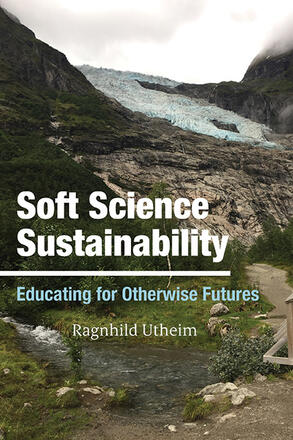
Soft Science Sustainability
Educating for Otherwise Futures
Alternative formats available from:
Multifaceted exploration of the dimensions of education for climate justice.
Description
The central role of education in responding to climate change is noted by stakeholders of all kinds. Yet for education to act as a vehicle of change it must become more holistic, inclusive, critically reflexive, and transformative. Most critically, it must transcend the grip of Western hegemonic reasoning—of modern colonial habits of seeing, perceiving, relating, and structuring—as the only legitimate means of making sense of life and the earth we inhabit together. Because drivers of climate change involve multidimensional, intersecting anthropogenic processes that are at once global and local in scope and are often intimately personal in ways difficult to discern directly, educating to sustain the future will require competencies that exist beyond science and technological innovation. In Soft Science Sustainability, Ragnhild Utheim uses social cartography to explore the metacognitive, psychosocial, intercultural, collaborative, and interactive systems dimensions of what it means to sustain our common future together. The 3C cartography examines the less tangible human behaviors, thoughts and emotions, worldviews, interdependencies, complexities, and dynamic adaptability that factor into climate change and its threats to human and other-than-human life on earth.
Ragnhild Utheim is Associate Professor and Director of the School of Liberal Studies at Purchase College, The State University of New York.
Reviews
"Soft Science Sustainability is a great resource for critical environmental teachers and instructors. Utheim's 3C cartography provides a much-needed alterative to mainstream frameworks and represents an exciting contribution to the field of critical environmental pedagogy and curricular development." — Jesse Goldstein, author of Planetary Improvement: Cleantech Entrepreneurship and the Contradictions of Green Capitalism